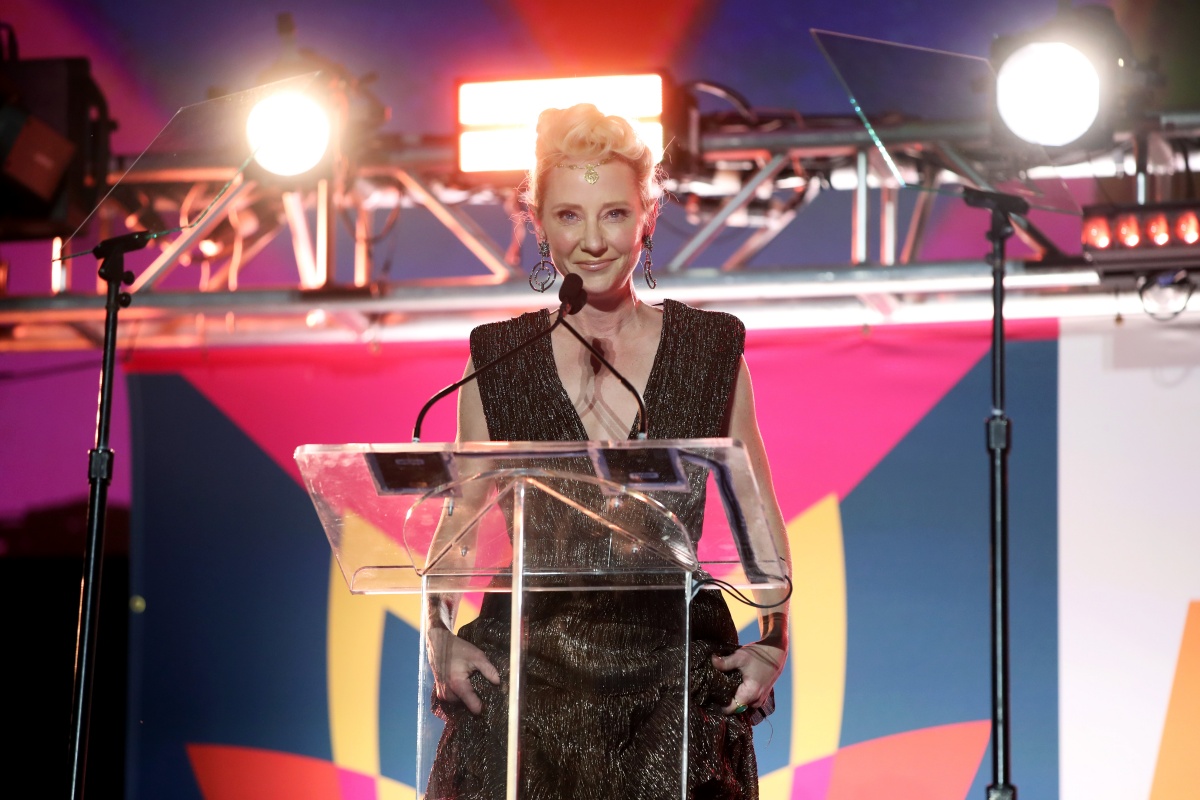Anne Heche’s Years Suffering Biphobia, Ableism, and Abuse Shouldn’t Be Ignored in Her Death

Actress Anne Heche was declared brain dead and taken off life support on August 15, 2022. Hers is name I’d heard a lot growing up, but I had no idea about the trauma and battles that she faced throughout her life as a survivor of childhood sexual abuse, sexual harassment, familial trauma, mental health issues, and extreme biphobia.
Content Warning: Discussion of childhood sexua abuse, sexual harassment, and addiction.
Heche, born in 1969, spoke in her memoir, Call Me Crazy, about her experience with trauma, starting with her father, who sexually assaulted her starting from infancy. He eventually died of AIDS in 1983 after coming out. Three months later, Heche’s brother died in a car accident that some believe was a suicide. Her sister Cynthia died of a heart defect as an infant, and her other sister Susan died of brain cancer. Back in 2011, she shared that she was working on building a connection with her remaining sister. She also said that she had no relationship with her mother, Nancy Heche, who worked as a Christian counsellor trying to “cure” homosexuality.
Anne Heche was already a working actress with a notable career but flew into new level of mainstream attention when she started dating Ellen DeGeneres in 1997. Much like a similar situation with Rebel Wilson, because she’d had male partners, she was seen, to quote New York Times Magazine, “as both publicity hound and career opportunist.” When you look at past articles that discuss Heche’s queerness, there is a lot of biphobia and a lack of intersectional understanding about mental health. For some, her assault by her gay father was framed as a betrayal. This especially shown in her 2001 interview with The Advocate, where the interviewer asks question about how she could be a victim of sexual abuse by her gay father, framing her allegations of abuse as “sex with her father.”
I tried to keep in mind that it was a different time, but there is something that hits me right in the gut when I read it. It is just so cruel and wants to use her trauma and the fact that she doesn’t fit neatly into any label as evidence of something duplicitous. Everything about the interview is biphobic, ableist, and cruel.
After Heche’s breakup with Ellen, she suffered a massive psychological break with reality—something that, when you consider the massive trauma she described in her life, seems very understandable, not to mention that her relationship with Ellen opened her up to so much stress that its ending might have been a traumatic experience. She went to a complete stranger’s house apparently high on ecstasy, and when the police were called, she talked to them about being god and taking people to heaven in a spaceship. Despite getting well and reaching out to tell her story, Call Me Crazy was mocked by Jay Leno and others in daytime and nighttime television, especially since her book was released close to 9/11. On The Tonight Show, Leno said, “To think that all we had to worry about two weeks ago was that Anne Heche is crazy.”
In 2018, she shared that she had once been fired from a film for not giving Harvey Weinstein oral sex. She told the Allegedly With Theo Vonn & Matthew Cole Weiss podcast,
“The fact is, I was fired from a job that I had been hired for in Miramax. The repercussions of standing up for yourself were as deep and targeted as some of the scars of the women who actually got more physically, unfortunately, involved.”
On August 5, 2022, according to reports, Heche was driving a car under the influence of drugs. The crash caused a massive fire that caused the destruction of Lynne Mishele’s home. Heche was initially in a coma before being declared brain dead. She was being kept physically alive in order to allow for organ donation before being taken off life support.
Lynne Mishele sent condolences to Heche’s family, and I think it is possible to hold Heche accountable for driving under the influences, while recognizing the severe lack of care she received in her life. We can do two things at once. If Heche had lived, then she could have made amends and helped use the money she had to support Mishele. Now she leaves behind children who have lost their mother. We can accept and acknowledge that what she did was wrong without trying to turn her into a monster. Had she lived, or even if she had killed someone in this accident, we would be having a different conversation. But that isn’t the case.
Jennette McCurdy has just released her memoir I’m Glad My Mom Died, expressing her own relationship with parental abuse. While in the year 2022 there are people open to those feelings, there are still those who blandly call for forgiveness, without having any empathy for those who suffer. We are quick to say someone has an attitude, but slow to understand why. Addiction is more than just something you give to an angsty character on a television show. Trauma is not just backstory. It is the fabric of identity that is crafted around you. It does not easily go away, and when people, institutions, and communities fail, it does not make us stronger just because we may want to be. Hold Anne Heche accountable, but also hold those accountable who tormented and fed her pain with their biphobia, ignorance, and cruelty, too.
(featured image: Rich Fury/Getty Images for Race to Erase MS)
Have a tip we should know? tips@themarysue.com